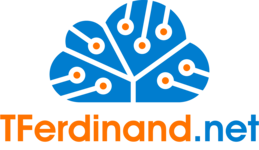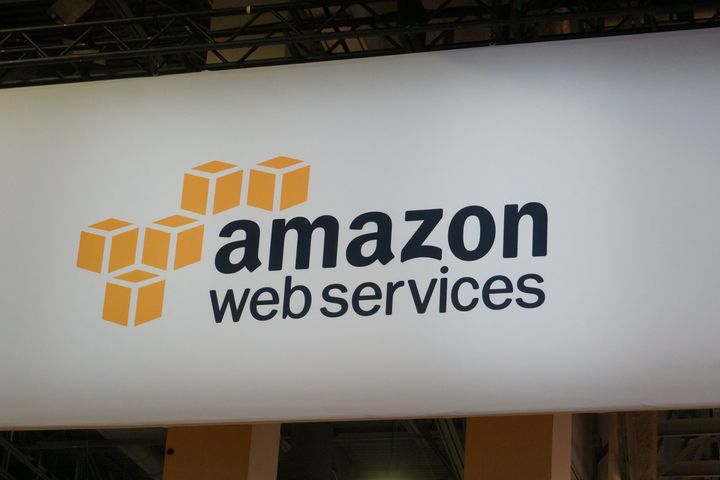GAFAM: Smile, you offer your data

GAFAMs, they are everywhere, sometimes clearly visible, like when you go on Google, sometimes much less so, like for example Amazon which owns the IMDB site.
What are the GAFAMs?
I make this little point for those who don't know what the GAFAMs are. What is commonly called GAFAM are none other than :
- Apple
- Amazon
- Microsoft
These five companies now largely dominate the Internet, and it is very difficult to really do without them.
Why are the GAFAMs omnipresent?
Not all actors have the same approach to be present everywhere. For example, Amazon is very present today thanks to its cloud, AWS. Many of the infrastructures you use every day run on AWS, to name but a few: Netflix, Expedia, Adobe or the BBC. Amazon is also present thanks to many corporate purchases, I gave the example of IMDB, but Amazon is also the titan of video game streaming, Twitch.
Apple is also present, but due to its ecosystem, as the latter is closed, but Apple users represent a significant part of it, it is mandatory to go through the AppStore box, which allows Apple to collect its share for each transaction, and to easily trace the habits of its users.
Facebook... Do I really need to explain the Facebook model? Personal data is the heart of Facebook. I'll tell you about it below. Just like the two previous players, Facebook is also ubiquitous thanks to corporate purchases, such as occulus for example.
Google has a model similar to Amazon's in some respects, especially regarding the public cloud with GCP. Google leads users to give their information to it in other ways, via free access. Via the vast array of free applications such as Android or Gmail that Google offers, the counterpart is always the same: give your personal information, especially for advertising targeting, made by a Google agency (AdSense). As the saying goes: "If it's free, you're the product". Remember this the next time you do a search on their engine.
Microsoft also has a similar model. Just as present on the public cloud with Azure. Microsoft is blossoming between the free and paid world. On the one hand, we're going to have sites like hotmail, which take the google model. On the other hand, we're going to have Windows, which despite the fact that it's paid (although often bought as an OEM version), sends its data to Microsoft on how you use it "to improve the product". Microsoft has also put a huge foot in social networks, with two big purchases in recent years: LinkedIn and GitHub.
The GAFAMs are being pragmatic
From what I have described above, one would think that the GAFAM are constantly fighting a merciless war. Yet what makes these companies so powerful is also their pragmatism.
For example, Amazon uses Office365, LinkedIn and Facebook work at least partly on AWS.
It is also, in my opinion, what makes the strength of these companies, being aware that there we are not necessarily good, we must go to the competitor (sometimes even the direct competitor) when the product is more functional. But that doesn't stop them from waging a merciless war against each other.
The GAFAM, the devil incarnate?
With the portrait I have just drawn, one would think that I think the GAFAM are the devil incarnate. That's not true. I consider that the GAFAMs contribute to improving the IT landscape in general, but that we must be aware of the counterpart required.
The cloud has revolutionised the IT world in recent years. Amazon, Google and Microsoft have had a lot to do with it, as they have helped democratize the public cloud and make it accessible and useful to all businesses of all sizes, but also to individuals.
Google for example is at the origin of Kubernetes, we know the power of containers and orchestrators today. Kubernetes has a lot to do with the craze for these technologies. The fact that the GAFAMs are major contributors to the latter also helps a lot in its adoption I think.
I could cite many other areas where I think the GAFAMs have made a difference. But again, you have to be aware of the trade-off.
The case of social networks
I'm going to talk here mainly about LinkedIn and Facebook. Nevertheless, the subject could be extended to YouTube for example.
Social networks are a paradise for the GAFAM. Rather than asking for personal information, information that one may be reluctant to give, social network users give it by themselves! As a reminder, all information published on them belongs to them. Even a simple "like" is useful information, a message sent, a "post", even to a private circle, a photo sent to a friend: everything belongs to the host, it's all part of the terms of use, you know the trick that everyone validates without reading it.
There are nevertheless some nuances. On LinkedIn, your data are partly resold via the "LinkedIn premium" often used by companies to hunt their future recruits. On Facebook, I count more the number of sharing and "tests" (sic) completely useless if not recovering a maximum of personal information.
As a small random example, I had fun looking at my permissions requested by a test I saw several times on my Facebook feed, "Which Star Wars character are you", very fashionable at the moment, with a picture of baby Yoda to bait as much as possible. Here is the list of data that the "test" can access:
- First and last name.
- Location
- Friends
- Must post on your FaceBook wall
Rather good for a test that makes no sense, the test publisher makes a small database that they can easily sell afterwards, and all this without any effort since the users give their information voluntarily!




Comments ()